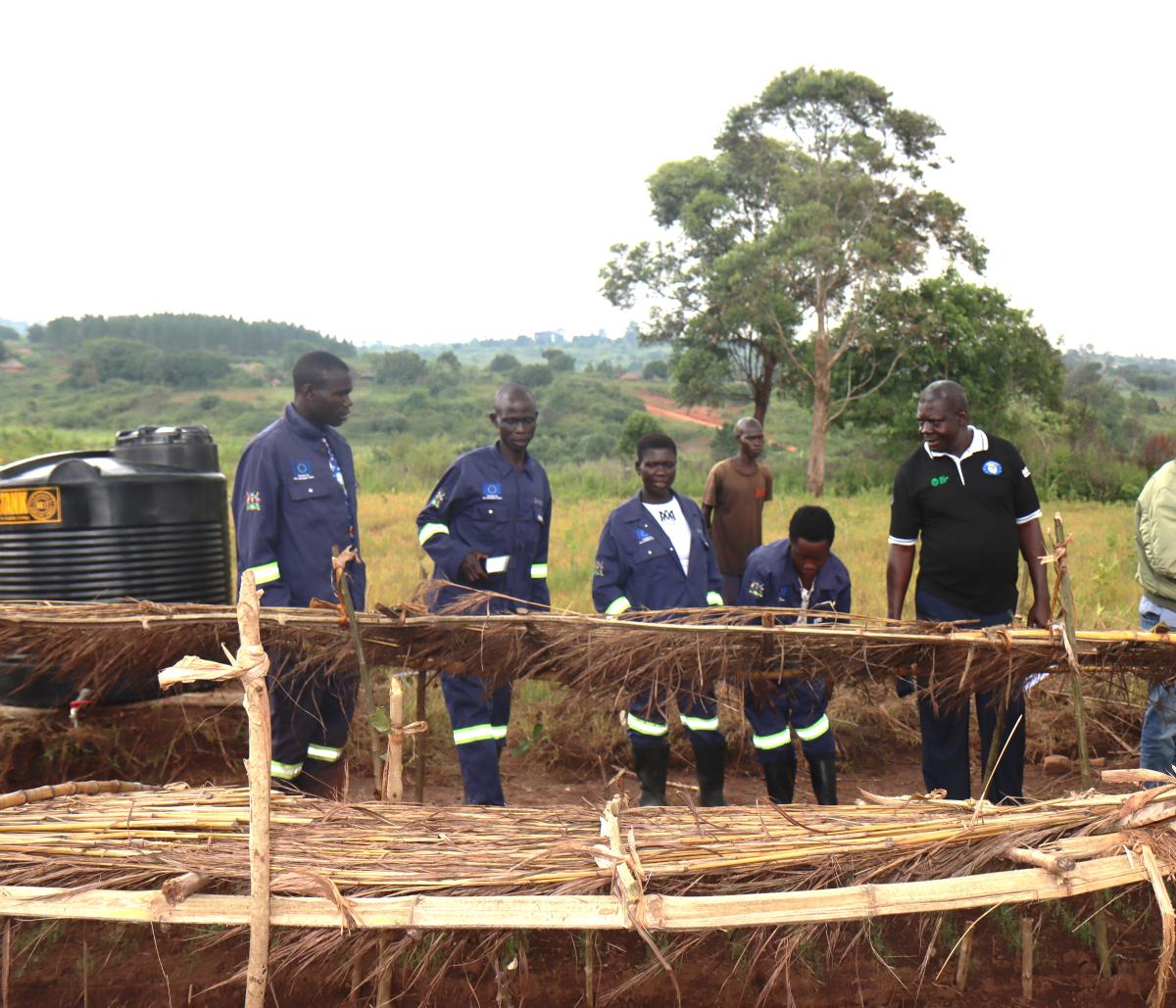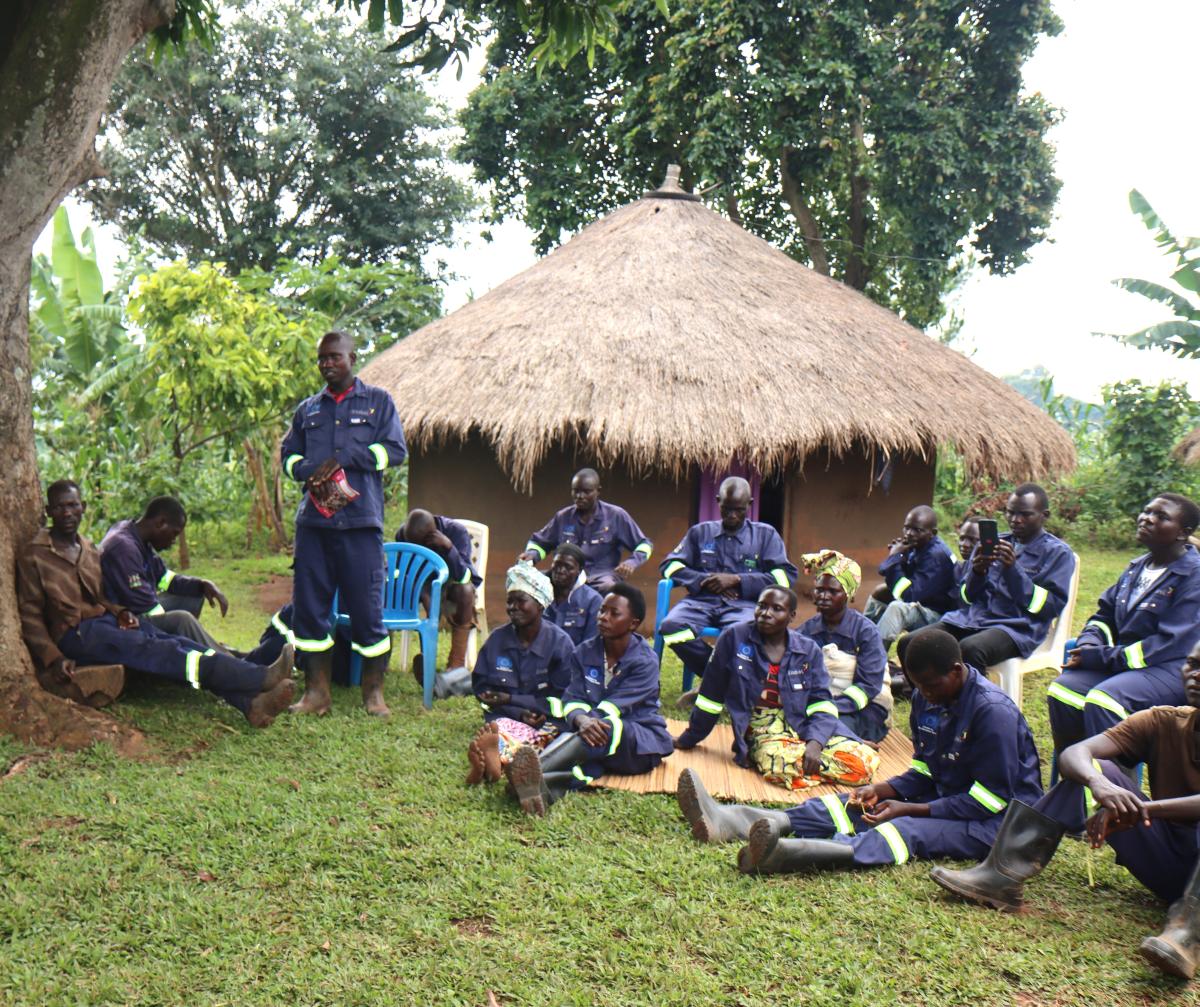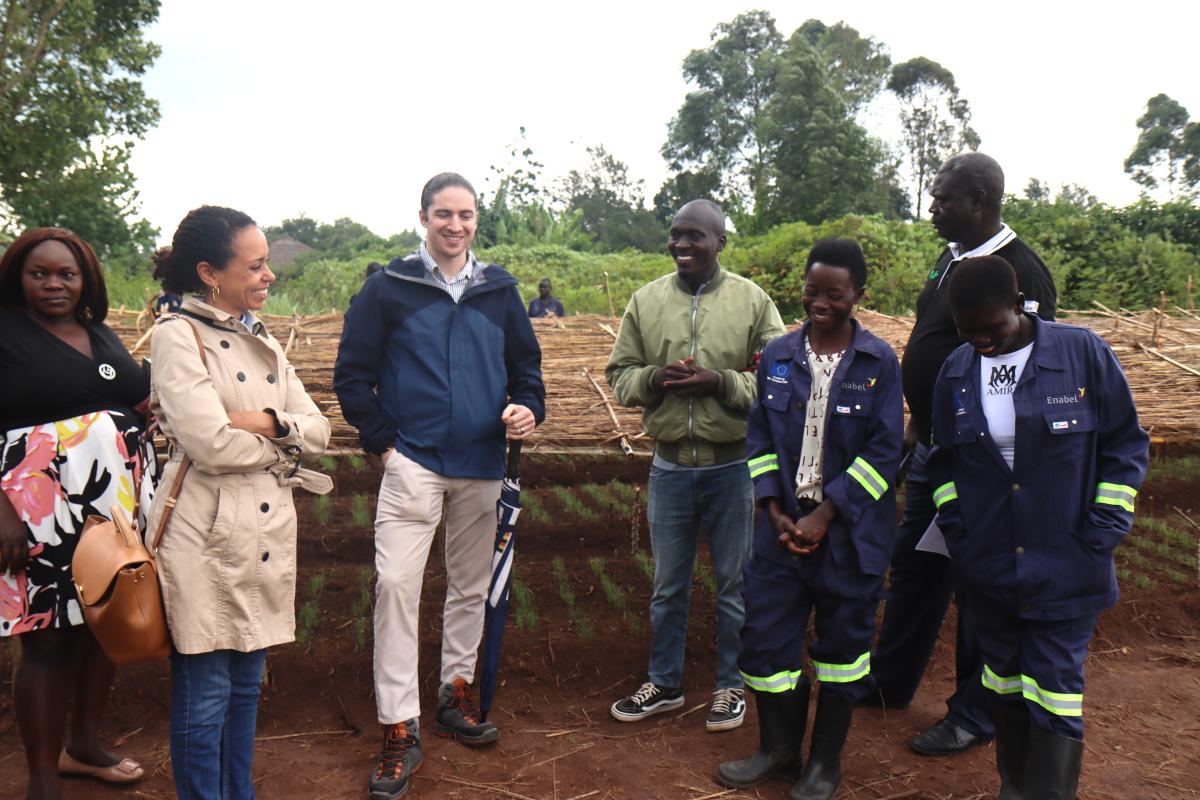Farmer group set to earn millions of shillings selling vegetables in Uganda
In Ogonga village, Yumbe district in Northern Uganda, a group of 30 farmers—15 men and 15 women—are rewriting their story. What began as casual farm work for others has turned into a self-driven farming venture with bold targets, a steady income, and a new sense of purpose.
The group was formed in 2022. In the beginning, they practiced small scale farming while relying on the little knowledge they had on vegetable growing, until they learned about Omia Agro Business Center that things began to change. After linking up with Omia, the farmers received training from extension officers and decided to hire a piece of land and grow crops at a larger scale.
Their first attempt at commercial farming began with tomatoes. Despite a flood that destroyed 60% of their garden just before harvest, they still earned 8.8 million shillings (€ 2,138) in the off-season. Their original target was 18 million shillings (€ 4,773). Determined to grow, the group used part of their earnings—2.4 million—to rent new land. They’ve already set up nursery beds and planted again, this time tomatoes, onions and cabbages. Their new goal is to earn 40 million shillings by the end of the year.
“Some of the money we earned from our first harvest is saved in our group box to help with family needs. We no longer borrow from banks; we borrow from ourselves,” one member proudly said. The change is visible in their homes.
“Our standard of living has improved. We are not suffering like before,” said Margaret Okyokoro, a group member who thanked God, Omia, and Enabel for supporting their journey.
The group credits Omia and Enabel for providing them with knowledge on nursery beds, crop spacing, and proper farming techniques. Through the training, they have transitioned from small-scale farming to managing two acres. They’ve also received watering cans, a solar-powered irrigation pump, and personal protective equipment.
“Our uniform makes us stand out from other groups,” said Margaret, who is eager to train others if given the chance.
Still, challenges remain. As the farm expands, the single solar pump they have is no longer sufficient. “We plan to buy another solar panel, but we’re not sure if we’ll have enough money,” said Moses Asiku. Charles Okot, the project manager for WeWork-green and decent jobs for youth project encouraged the group to remain committed. “We shall continue to work with you through our partners, Omia Agro business center. Our goal is that each of you earns at least 250,000 shillings (€ 61) or more per month. Reinvest your income and become more resilient,” he advised. In addition to getting seedlings from Omia, the group also receives technical training and market links. “We used to grow on small land with little capital, but Enabel helped us expand. We can now afford pesticides and irrigation,” one member explained. Though they didn’t meet their earlier target, the group decided to reinvest 8 million shillings (€1,943) to help reach the new goal. If successful, each member hopes to earn at least 1 million shillings (€243) to start their own gardens. Looking ahead, they want to venture into watermelon and other fruits, and are open to learning more about smart agriculture, especially after a recent flood caught them off guard. Omia has started teaching them techniques like mulching and building ridges to protect against heavy rain.
Sofian Dahmani, from the European Union, hopes the group’s growing business knowledge will lead to self-sufficiency. “With the right support, they’ll not only feed their families but also run successful agribusinesses,” he said. The WeWork project is co-funded by the European Union and the Kingdom of Belgium and is implemented in the regions of West Nile, Busoga, Fort Portal and Kampala Metropolitan.
Latest news from this project
No news



